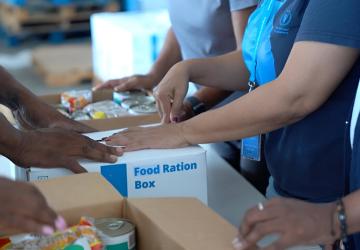How to Finance the Food Transformation We Need, to Deliver the Future We Want
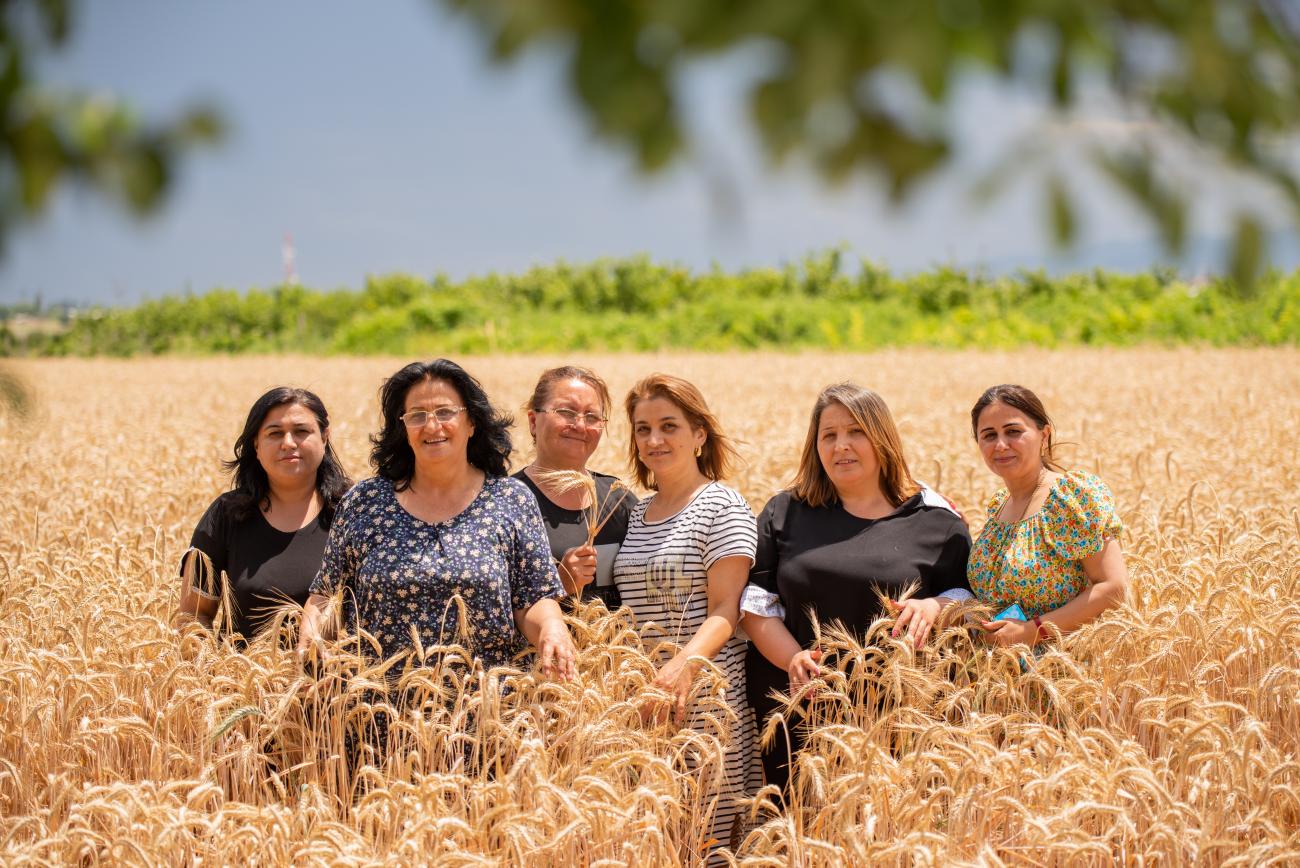
One of today’s most baffling paradoxes is that we produce enough food to feed over 8 billion people, yet more than 673 million of us still go hungry. The situation is particularly dire for the most vulnerable members of our communities, including women and girls, migrants and people living in remote, rural areas. Hunger disproportionately affects communities in developing countries, too. Data shows that the average level of undernourishment in OECD countries is less than 3 per cent, while it is, for instance, 23 per cent in Bolivia and 18 per cent in Nigeria. Similarly, child stunting in Cameroon and Indonesia occurs at more than 25 per cent, while it is less than 2 per cent in the UK. In countries facing conflict, these numbers skyrocket.
Our food systems today also cause many harms to people and the planet. From how we grow and process food, to how we transport, store, sell, cook and dispose of it, our food systems are a major contributor to climate change, biodiversity loss and pollution. And our focus on boosting food production is inherently and deeply inequitable, causing increases in debt, gender and income inequality. It undermines workers’ rights and leads to the mass displacement of farmers. The numbers quantifying these trade-offs are sobering: our global food systems generate nearly $13 trillion in hidden health, environmental and social costs.
Our food systems require an urgent transformational shift to deliver the future we want.
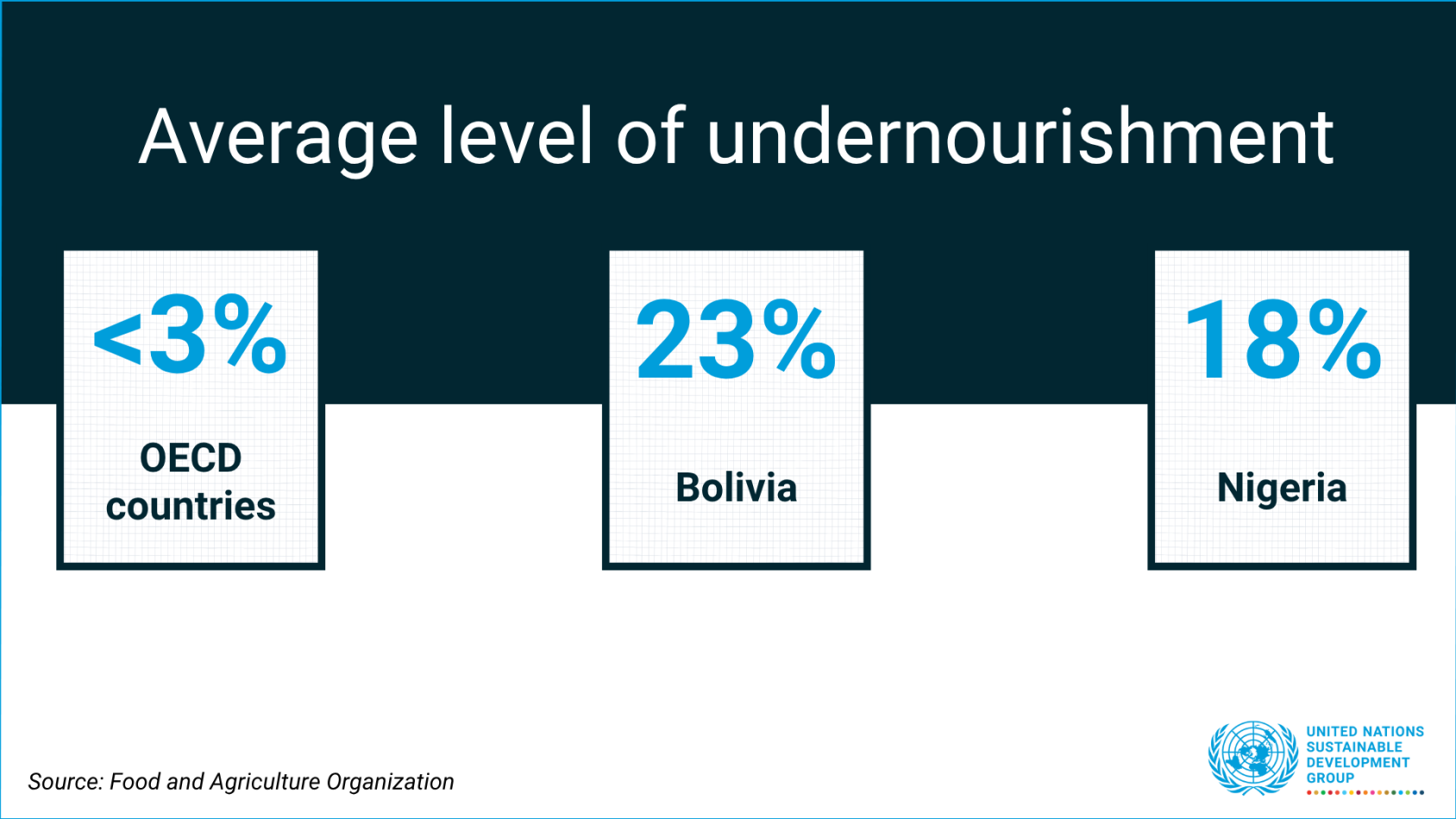
Financing our food systems transformation
Availability of adequate resources is critical to achieving this transformation. More precisely, about $300-400 billion is needed per year. This food financing gap is part of the overall $4 trillion annual financing shortfall needed to achieve the Sustainable Development Goals (SDGs).
To build more sustainable food systems, we need to shift financing flows away from practices that harm the environment or exploit workers and direct it instead toward businesses that are fair, climate-friendly and good for nature. In other words: inclusive, climate-smart, and circular business models. This also means rethinking agricultural subsidies and fiscal incentives to support more resilient practices, not harmful ones. We can lower risks for investors that support these new business models and encourage donor governments and international financial institutions to step up support for the most vulnerable, making sure smallholder farmers and food entrepreneurs can access the financing they need.
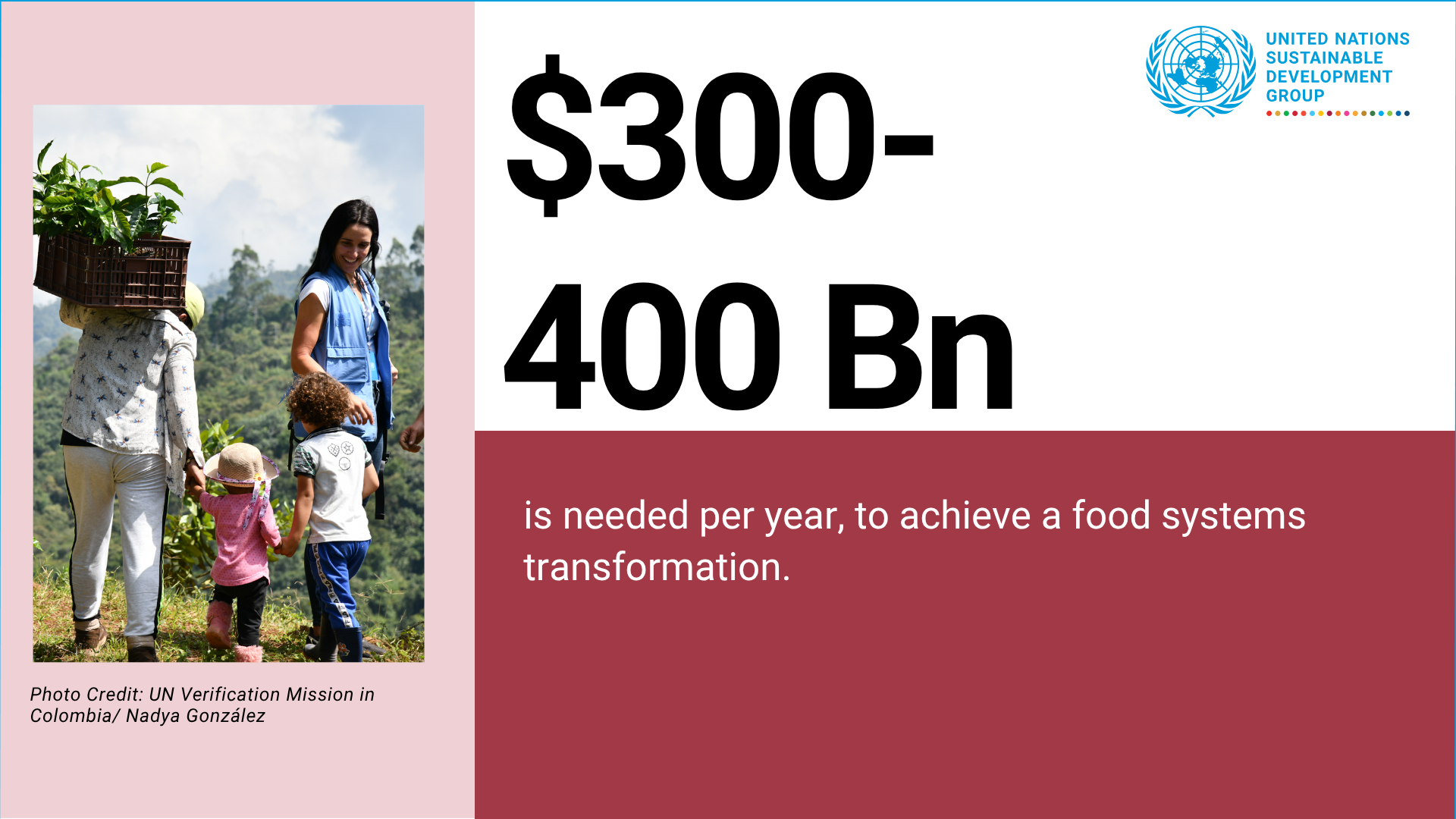
There is strong political momentum behind this effort. At the recent Fourth Conference on Financing for Development (FfD4), over 60 Heads of State, private sector leaders, civil society organizations and international institutions mobilised bold and transformative action to accelerate progress on the SDGs, including closing financing gaps related to the Goals. Their engagement culminated in the adoption of the Sevilla Commitment, charting a roadmap to close the SDG financing gap by achieving a 15 per cent tax-to-GDP revenue benchmark in developing countries and scaling up private capital mobilisation. In tandem, Spain launched the Sevilla Platform for Action, bringing together over 130 new initiatives, from debt relief and green investments to digital finance and tax reform, all aimed at turning the conference’s commitments into real results onthe ground.
The Sevilla Commitment and the Platform for Action lay out both a political vision to close the SDG financing gap and a practical roadmap to transform food systems, emphasising inclusion, country leadership, smarter financing, and systemic reform. By linking food systems with broader efforts on climate and the SDGs, they open the door to real progress on health, environment, equity and resilient livelihoods.
The momentum is there. Now, it’s time to turn these commitments into action.
From commitment to impact: Capitalising the UN’s convening power
Turning the Sevilla Commitment into real progress on food financing will take bold collaboration across our food systems. Governments, banks, investors, development institutions, food companies, farmers, fishers and philanthropies each hold different levers of influence, and in every country, they must come together to pull in the same direction. The UN’s convening power can help unlock this alignment and drive the scale of action we now need.
130 UN Resident Coordinators (RCs), the Secretary-General’s representatives to advance sustainable development, are bringing together these actors across 162 countries and territories to transform food systems. By leading UN Country Teams, the RCs align policy and finance efforts and draw on the UN’s full expertise to support national plans for more sustainable, inclusive food systems.
Resident Coordinators in 41 countries are currently using Joint SDG Fund resources to leverage additional financing for food systems transformation. For example, in Bolivia, the RC brought together Food and Agriculture Organization (FAO), International Fund for Agricultural Development (IFAD), International Labour Organization (ILO), World Food Programme (WFP) to support a climate-resilient food system rooted in nature and Indigenous knowledge. With $23 million in financing from investors and other partners, the initiative is helping smallholder farmers boost productivity and adapt to climate change while also strengthening government capacity to shape policy and attract investment for lasting change.
Likewise, in Nigeria, under the leadership of the UN Resident Coordinator, FAO, IFAD, UN Children’s Fund (UNICEF) and WFP joined forces to improve food system governance, efficiency, and security through digital innovation. Together, they mobilised an additional $10.5 million to tackle challenges ranging from increasing agricultural productivity and reducing post-harvest losses, to improving market access, nutrition awareness, gender equity and climate resilience.
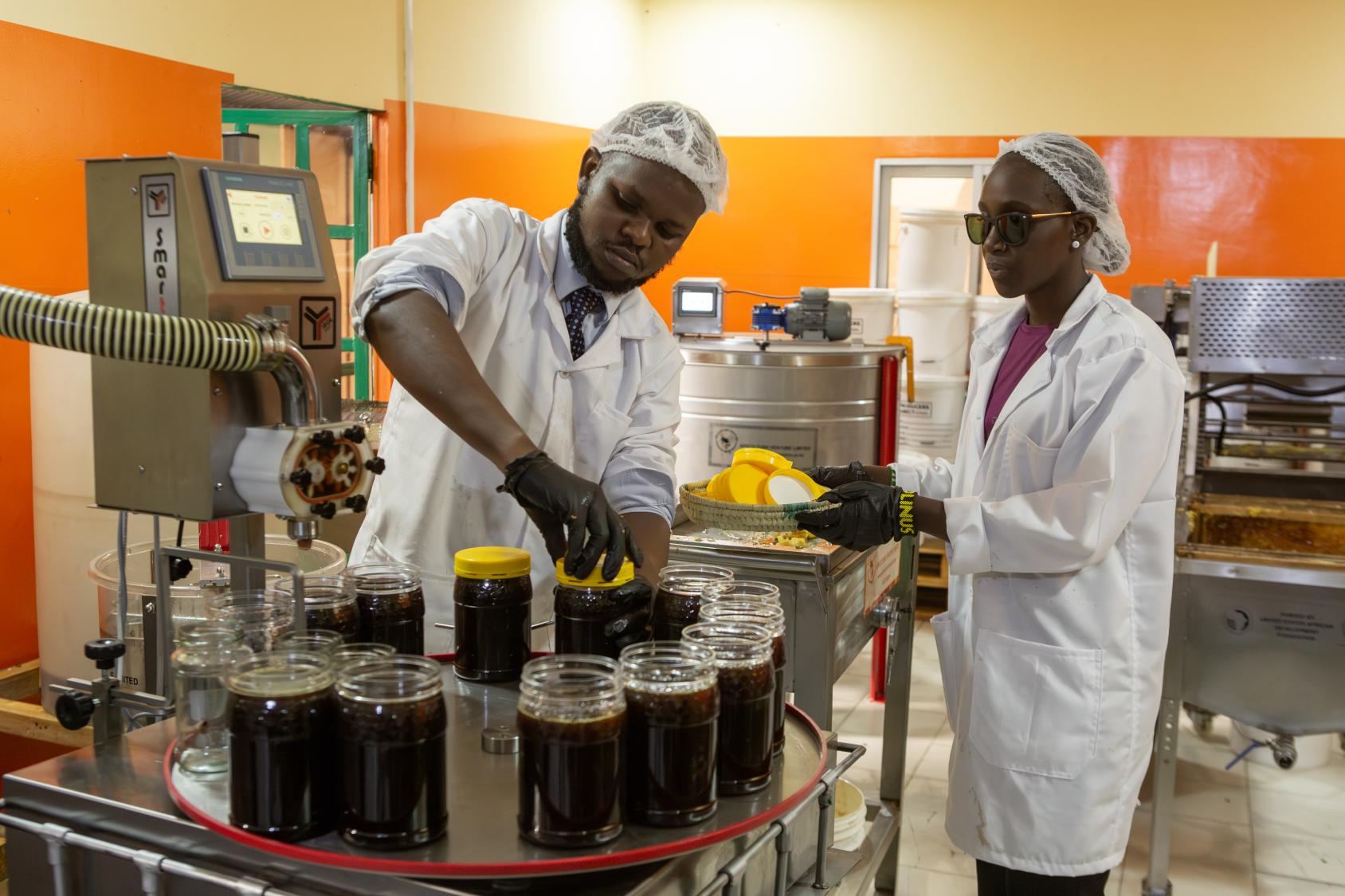
As we race to achieve the SDGs, one thing is clear: we won’t get there without transforming our food systems. But we also know that Food systems transformation will have ripple effects that can help us get there faster. That’s why world leaders and key stakeholders are gathering in Addis Ababa from 27 to 29 July for the UN Food Systems Stocktaking Moment (UNFSS+4), four years after launching national pathways to sustainable food systems, to reflect on progress, strengthen partnerships and unlock the financing needed to accelerate change.
With only 35 per cent of SDG targets making adequate progress, the stakes have never been higher.This is our opportunity to turn momentum into lasting impact and leap boldly into the future we want.
This blog was written by Sustainable Development Officers Carmen Arguello and Poorti Sapatnekar of the Development Coordination Office.









